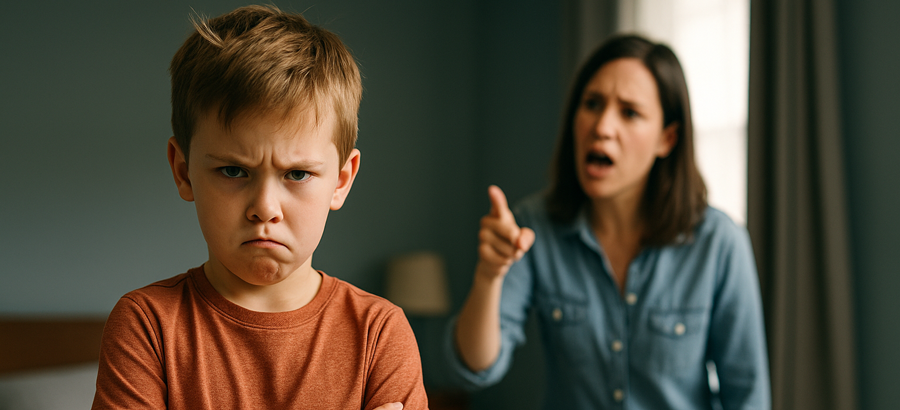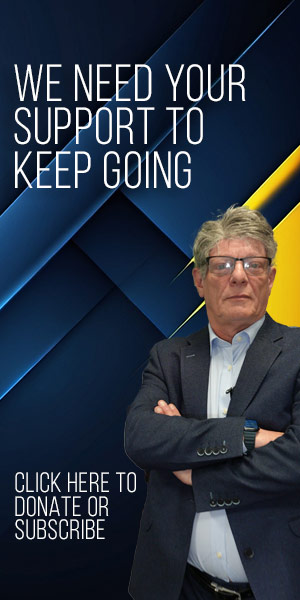The Pendulum Swung Too Far: How Comfort is Raising a Generation Unprepared for Reality

“The Pendulum Swung Too Far: How Comfort is Raising a Generation Unprepared for Reality”
There’s an old saying that rings louder with every passing year:
“Hard times create strong men. Strong men create good times. Good times create weak men. And weak men create hard times.”
It’s more than just a catchy quote — it’s a chilling reflection of the cycle we’re living through. We’ve worked hard as a society to give our children better lives. We’ve eliminated many of the hardships we endured. But in doing so, have we robbed them of the resilience, discipline, and respect that hardship used to build?
Today, I see children speaking to their parents like they’re punching bags. I hear kids cursing at their mothers in supermarkets, back-chatting teachers, and laughing off authority figures like the Gardaí. Basic manners seem optional. Accountability? Rare. And it begs the question: What happened to parenting? What happened to respect?
The Psychology Behind the Pendulum Swing
To understand where we are, we need to look at where we came from.
Many parents today were raised in homes where discipline was synonymous with fear. Corporal punishment — once common in homes and schools — often crossed the line into abuse. Children were seen, not heard. Feelings were repressed. Mistakes were met with a belt, not a conversation.
So it’s no surprise that many of those children, now grown up, vowed:
“I’ll never raise my child the way I was raised.”
That promise, rooted in pain and love, has had unintended consequences. The pendulum swung hard in the opposite direction — from authoritarianism to permissiveness. From fear-based parenting to friend-based parenting. And in many homes, it swung too far.
Instead of balance, we got avoidance.
Instead of discipline, we got negotiation.
Instead of boundaries, we got chaos.
The intention was noble: to break the cycle of trauma. But in protecting children from pain, many parents also protected them from growth.
Self-Entitlement: The Silent Epidemic
One of the most toxic by-products of this overcorrection is the epidemic of self-entitlement we see in kids and teens today. There’s a rising mindset among many young people that they are owed something — not because they’ve earned it, but simply because they exist.
They expect the newest phone, the best clothes, the latest trends — all without lifting a finger. Many don’t help around the house, don’t show gratitude, and explode when they don’t get their way. I’ve heard a 10-year-old tell his mother to “f*** off” in a shopping centre because she wouldn’t buy him a game. That wasn’t an isolated case — it’s becoming frighteningly common.
Entitlement like this doesn’t happen in a vacuum. It’s fed by:
- Parents who give in to every tantrum for peace and quiet.
- A culture that tells kids “you deserve it” without earning it.
- A society where participation trophies and “everyone wins” messaging eliminate real accountability.
But here’s something important — and it needs to be said: not all kids are like this.
There are still many young people who are respectful, responsible, and deeply compassionate. In fact, it often seems like the kids who have the least in life are the ones who respect it more.
Take the example of the 12-year-old boy caring for his mother, who lives with a severe disability. While many of his peers are glued to screens and complaining about what they don’t have, this young lad is cooking meals, doing laundry, and taking on the role of a grown adult — not because he wants praise, but because he loves his mother. He understands hardship. He understands responsibility. And as a result, he shows a level of respect, maturity, and gratitude far beyond his years.
His mother recently shared their story on The Niall Boylan Podcast, explaining just how amazing and selfless her son is. Her voice cracked with pride as she described the strength and love he shows every day.
This isn’t an isolated case either. So often, the most grounded and considerate kids are the ones who have faced challenges — those who’ve had to help out at home, deal with illness, or simply go without. Hardship teaches them what so many entitled kids never learn: nothing in life is guaranteed, and everything earned has value.
It’s not about wealth or class — it’s about exposure to reality. Kids who are shielded from all forms of difficulty often develop unrealistic expectations of life. But kids who’ve experienced real struggle tend to appreciate the basics — love, time, food, stability — and often carry a quiet wisdom the world sorely needs.
So while we may be seeing a cultural crisis of entitlement, it’s important not to paint all children with the same brush. There are still young people who inspire hope. But they didn’t get there by accident — they got there because someone gave them responsibility, or life demanded they grow up faster. Either way, the lesson remains: comfort doesn’t breed character — struggle does.
The Rise of the “Cool Parent” — and the Fall of Responsibility
Modern parenting, particularly in Western cultures, has shifted towards emotional safety, self-expression, and gentle guidance. These aren’t inherently bad — in fact, they’ve helped many children flourish in ways older generations couldn’t. But when combined with screen addiction, lack of discipline, and parental exhaustion, they’ve become a recipe for entitlement and weakness.
Many parents today are terrified of being the “bad guy.” They fear upsetting their child, fear losing their love, or fear being judged as harsh or old-fashioned. They want to be liked. Respected. Seen as “cool.”
But parenting is not a popularity contest.
Sometimes, parenting means being misunderstood.
Sometimes it means saying “no” when it would be easier to say “yes.”
And yes — sometimes, it hurts more to punish than to be punished.
That old line — “This is going to hurt me more than it’s going to hurt you” — wasn’t a lie. It’s the truth that comes with loving a child enough to teach them hard lessons.
Kids Raised by Screens, Not Adults
It’s easy to blame social media for the decay in discipline — and to an extent, it’s true. Platforms like TikTok and YouTube have become the new parents of this generation. Influencers, many with no life experience or moral compass, are shaping how children think, speak, and behave. They teach kids that rebellion is cool, that rules are oppressive, and that everything should come instantly.
But here’s the hard truth:
Social media only has power because we handed it over.
We gave our children devices at age five.
We let iPads babysit them while we made dinner.
We allowed hours of screen time because it was easier than dealing with boredom or tantrums.
In the end, kids aren’t just being influenced by screens — they’re being raised by them. And it’s not the algorithm’s job to set boundaries. It’s ours.
The Erosion of Authority
What’s happening in homes is also happening in schools, in streets, and even in Garda stations. The erosion of parental authority has spilled over into a wider erosion of all authority.
Teachers are afraid to discipline students for fear of complaints. Gardaí hesitate to interact with teens, terrified of being filmed and “cancelled.” And parents — many of whom now walk on eggshells — fear being reported for shouting, never mind smacking.
The result? A power vacuum.
Children with no fear of consequences.
Teenagers who treat adults like equals — or worse, subordinates.
Authority figures who fear children more than children fear them.
It used to be that a child had a healthy fear of their parents. Now it’s often the parents who fear the child — fear their moods, their tantrums, their threats to call social services.
Soft Kids in a Hard World
This matters — not just because it’s annoying, but because it’s dangerous.
Hard times are inevitable.
Whether it’s economic collapse, job loss, rejection, illness, or death — life will test every person eventually. The problem is that many young people today have never been tested in the small ways. They’ve never been told no. Never been asked to wait. Never learned that actions have consequences.
So when the big challenges come, they won’t be ready.
Resilience is like a muscle. It must be built through discomfort, repetition, and failure. By cushioning every fall, fixing every mistake, and shielding kids from hardship, we’re sending them into adulthood untrained for real life.
The Way Forward: Discipline Without Trauma
So what’s the solution? It’s not to go back to beatings and belts — no one is arguing for a return to abuse. But we do need to reclaim the middle ground: firm, loving discipline. Clear boundaries. Real consequences.
Children don’t need a best friend. They need a parent.
They need someone who will say “no” and mean it.
Someone who will follow through.
Someone who loves them enough to let them cry now, so they don’t crumble later.
We need to teach kids that:
- Respect is earned — and it must also be given.
- Freedom comes with responsibility.
- Life is not always fair, and that’s okay.
- Struggle is not abuse — it’s preparation.
Final Thought
If we continue on this path, we risk raising a generation that is emotionally fragile, socially disrespectful, and ill-equipped for the real world. Not because they are bad — but because we didn’t prepare them.
We’ve made life easy for them — but real life isn’t easy.
We’ve removed pain — but pain teaches.
We’ve avoided conflict — but conflict builds character.
It’s time to bring back strength, boundaries, and resilience — not through cruelty, but through courage. The courage to parent with firmness and love. The courage to say “no.” The courage to do what’s right, even when it hurts.
Because one day, our children will face hard times — and when that day comes, they’ll need more than comfort.
They’ll need character.
And that’s on us.








